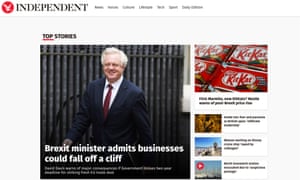Newspaper's are a public good
1) Why does Clay Shirky argue that 'accountability journalism' is so important and what example does he give of this?
Shirky argues that accountability journalism is what keeps corruption out of its way from iconic people. Meaning, from government and from places where people trust those who hold the most power, in this case it is the Church. He gives a story about what the new 'Spotlight' movie is based off of, where a group on journalists try and solve a case regarding sexual assault towards children, and the Boston church having an involvement with this case. Shirky believes that without quality journalism, such cases like the one previously mentioned would not come to light and the people will be under the power/control of a corrupt person.
2) What does Shirky say about the relationship between newspapers and advertisers? Which websites does he mention as having replaced major revenue-generators for newspapers (e.g. jobs, personal ads etc.)?
Shirky said that it was thanks to advertising that helped journalism be the best quality as it would produce a lot of revenue. He states that the profit received from news advertisers isn't enough to cover the threat of change. It was an accident for advertisers to successfully join with newspaper firms. Advertisers had to overpay for the services they received, due to very little substitutes available at the time. He mentions a company his friend set up called Xerox PARC stating that there was wide investment in Ethernet and graphic user interface. He also stated that monopolies were the ones who were trying to change the R&D departments.
3) Shirky talks about the 'unbundling of content'. This means people are reading newspapers in a different way. How does he suggest audiences are consuming news stories in the digital age?
The media is demand rather than supply, he states that when a reader wants a new page, that page is already printed for them to click on. News would't need to be stored in a warehouse in case someone 'may' want to purchase it, its already out there. He gives examples of online sites that do what advertisers do, craigslist, match and monster. These are sites that operate under a similar pattern to the advertisers for news companies. The see that public's goods rather than commercial ones. And it is because of such a saturated market, revenue streams for online advertising is plummeting. He believes that in the future there will never be a digital dime (news for free).
4) Shirky also talks about the power of shareable media. How does he suggest the child abuse scandal with the Catholic Church may have been different if the internet had been widespread in 1992?
The paper (back then) didn't just attract people. The majority of the audience for Boston Globe were Catholics, and by reader a story that is to do with their religion is something that they will spread across the community. So much so, that the audience numbers were like a chain reaction, spreading and spreading on a global scale.
5) Why does Shirky argue against paywalls?
He states that paywalls are seen as a violation of the contract, and that it won't bring them any value by charging a price for it. The whole point to change for such products is to take an infinite good and turn it into a finite good. And the papers have to act upon the public to stop creating news so that the business model would work (to generate money). Shirky believes that we (as audience members) should continue pubic journalism.
6) What is a 'social good'? In what way is journalism a 'social good'?
There is something called 'social production' which is where a group of people come together to and do something for themselves. Shirky states that we need people to come from outside the market and outside managerial culture which can help them provision them self enormous amounts of public goods.
7) Shirky says newspapers are in terminal decline. How does he suggest we can replace the important role in society newspapers play? What is the short-term danger to this solution that he describes?
Shirky states that news papers are something that is "irreplaceable", as it is the one source where accountable journalism can take place properly. Although the media landscape has a vast growth and success, it won't be enough to keep the industry going, and it is up to the audience to decide how they are going to keep this fairly significant industry alive.
8) Look at the first question and answer regarding institutional power. Give us your own opinion: how important is it that major media brands such as the New York Times or the Guardian continue to stay in business and provide news?
Over the years, newspapers have come common to providing their audience a specific view point on a subject matter. For example, UK newspapers follow a certain wing of the government and will base their argument off of that. The thing is, is that audience members like to consume information and stories based off of things that value their ideologies and share similar perception to them. If someone is against David Cameron, they will look up a newspaper that is very right wing, as it provides audience pleasures. It is this form of interactivity that big named news corporations have developed and therefore gained a big reader base. Due to this loyalty and audience pleasures they provide, people will stay loyal and continue to support the paper as they receive pleasure and entertainment from their content.









